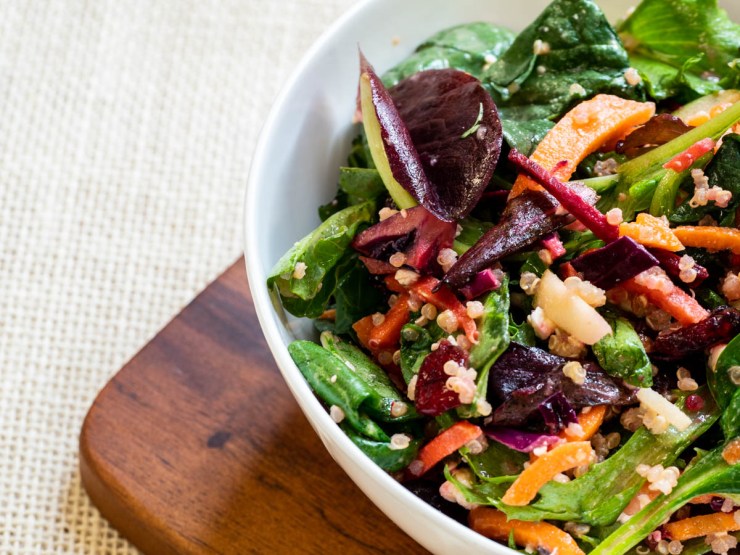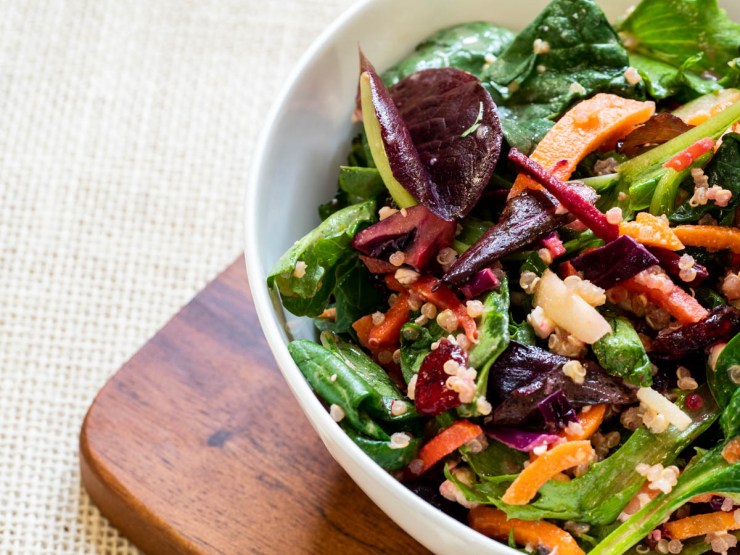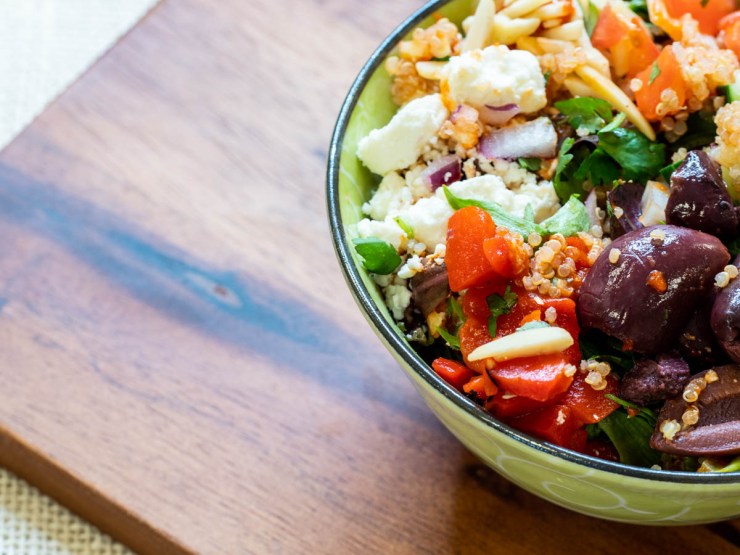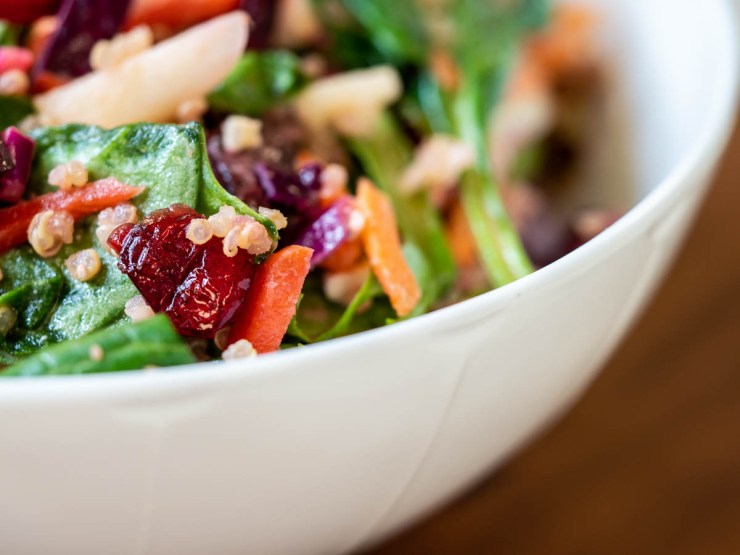I recently reviewed the Angler Circo LED Ring Light but was disappointed in its results for portraiture. My thinking was that maybe using it in an environment would hit the mark — and I was right. I paired the ring light with my Olympus 60mm f/2.8 Macro lens to photograph some food.
This experiment proved that you don’t need to have a fancy lighting setup with strobes all over your studio in order to get some well-lit shots. With a little work and some cheaper gear, you can make satisfying results that will be good enough to represent what’s on the table.
The setup
For this setup, I worked with fellow Photofocus author Cathy Seaver in her studio. We used a rolling cart and put a burlap material on it, to represent a tablecloth. Then we found a cutting board and a white bowl.
Of course, we needed some food. It was right around lunchtime, and we both wanted something vibrant, so we went over to Freshii to pick up two meals.
We started with my salad, and put that in a white bowl on the cutting board. We strategically placed some carrots and cranberries so they’d be a bit more visible and a focus point.

I put the ring light diagonally behind the bowl and found that the 80% power setting was just enough light without overpowering some of the brighter elements. I played around with my camera settings, ultimately landing on 1/10 second shutter speed at f/5.6 while shooting on a Vanguard Alta Pro 2+ 263AP tripod. The tripod’s three-way pan head made it super easy to adjust the angle of my camera on the tripod, making for adjustments that took mere seconds.
Tweaks
I noticed I was getting some heavy shadows on the lettuce. To circumvent this, I moved the ring light from its diagonal position to sitting right behind the bowl of food. This eliminated some of the stronger shadows and made for a more evenly-lit bowl of food.
.mgl-tiles { display: none; } #mgl-gallery-634eb1d536321 { margin: -5px; width: calc(100% + 10px); } #mgl-gallery-634eb1d536321 .mgl-box { padding: 5px; } @media screen and (max-width: 768px) { #mgl-gallery-634eb1d536321 { margin: -5px; width: calc(100% + 10px); } #mgl-gallery-634eb1d536321 .mgl-box { padding: 5px; } } @media screen and (max-width: 460px) { #mgl-gallery-634eb1d536321 { margin: -5px; width: calc(100% + 10px); } #mgl-gallery-634eb1d536321 .mgl-box { padding: 5px; } }
Before Lighting Adjustment
After Lighting Adjustment
You can see that the harsh shadows in the first photograph were evened out by repositioning the ring light. It also made for softer shadows throughout the photograph.
Moving in
After I had a few partial overhead shots done, I decided to take my camera off the tripod and go handheld. After all, the beauty of a macro lens is that you can get really close!
I tried focusing on the brighter elements in the bowl — mainly the cranberries and carrots. I shot these at multiple different angles. For these, I wanted to get a broader depth of field, so I shot as open as f/2.8 with a 1/40 second shutter speed, and the ring light turned up to full power. Ideally, I would’ve had a faster shutter speed for a bit more sharpness…but I limited myself to one ring light.
We also shot some photos with Cathy’s meal as well, which was put in a smaller, green bowl.
.mgl-tiles { display: none; } #mgl-gallery-634eb1d536b41 { margin: -5px; width: calc(100% + 10px); } #mgl-gallery-634eb1d536b41 .mgl-box { padding: 5px; } @media screen and (max-width: 768px) { #mgl-gallery-634eb1d536b41 { margin: -5px; width: calc(100% + 10px); } #mgl-gallery-634eb1d536b41 .mgl-box { padding: 5px; } } @media screen and (max-width: 460px) { #mgl-gallery-634eb1d536b41 { margin: -5px; width: calc(100% + 10px); } #mgl-gallery-634eb1d536b41 .mgl-box { padding: 5px; } }





Great results
While shooting with one light can be someone limiting, it can still give great results for things like food and other still-life objects. By using a ring light, you bring in a large light source that evenly lights the subject, providing a reliable light source with some great (and tasty) results.
Tell your story with the second annual Visual Storytelling Conference!
Experience four days of interactive, online training sessions featuring a range of educational content with experienced photographers and content creators. This free event kicks off with a series of technical boot camps to build essential skills, followed by live, online sessions on photography, video, business and social media. Join live from March 10-13, 2022!
